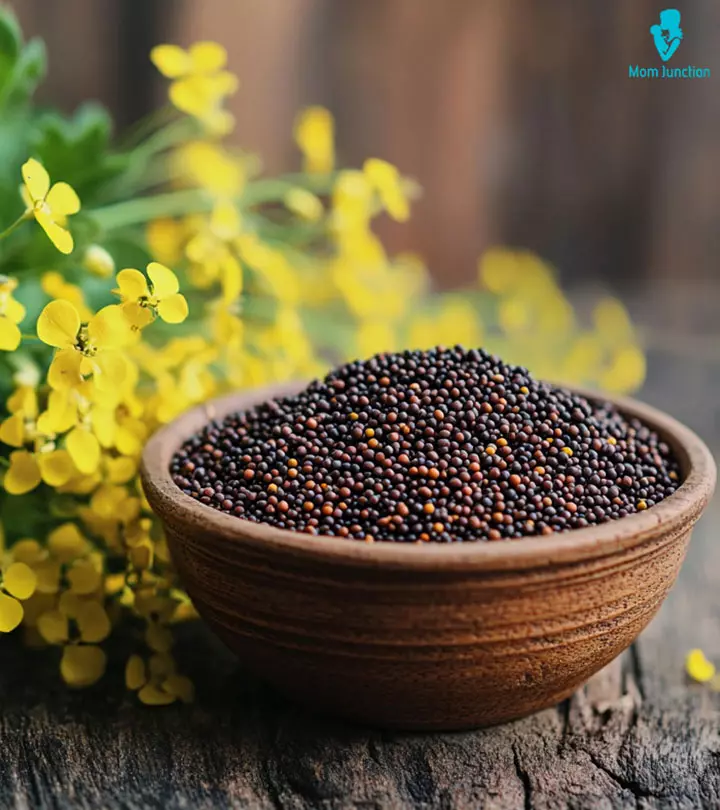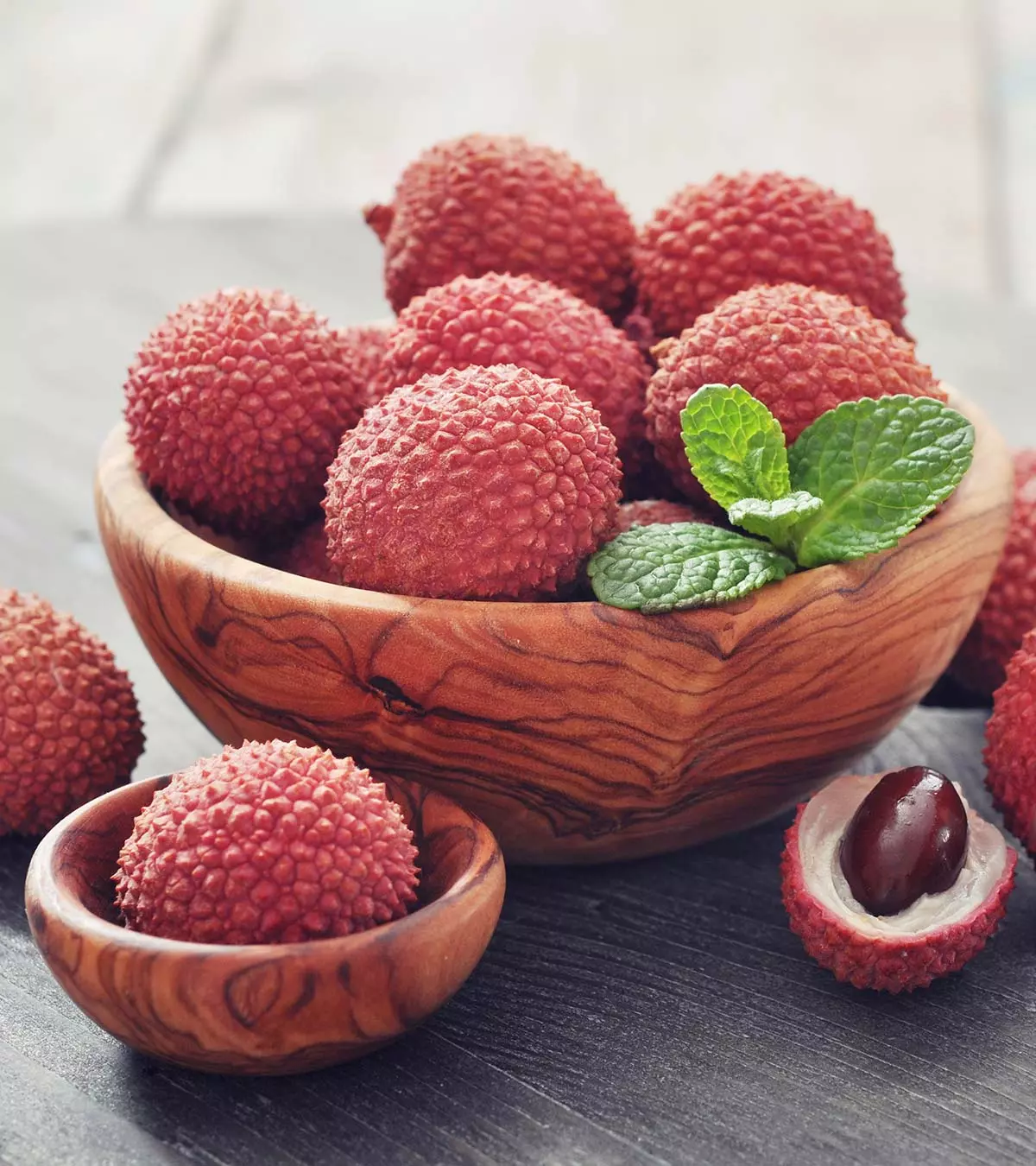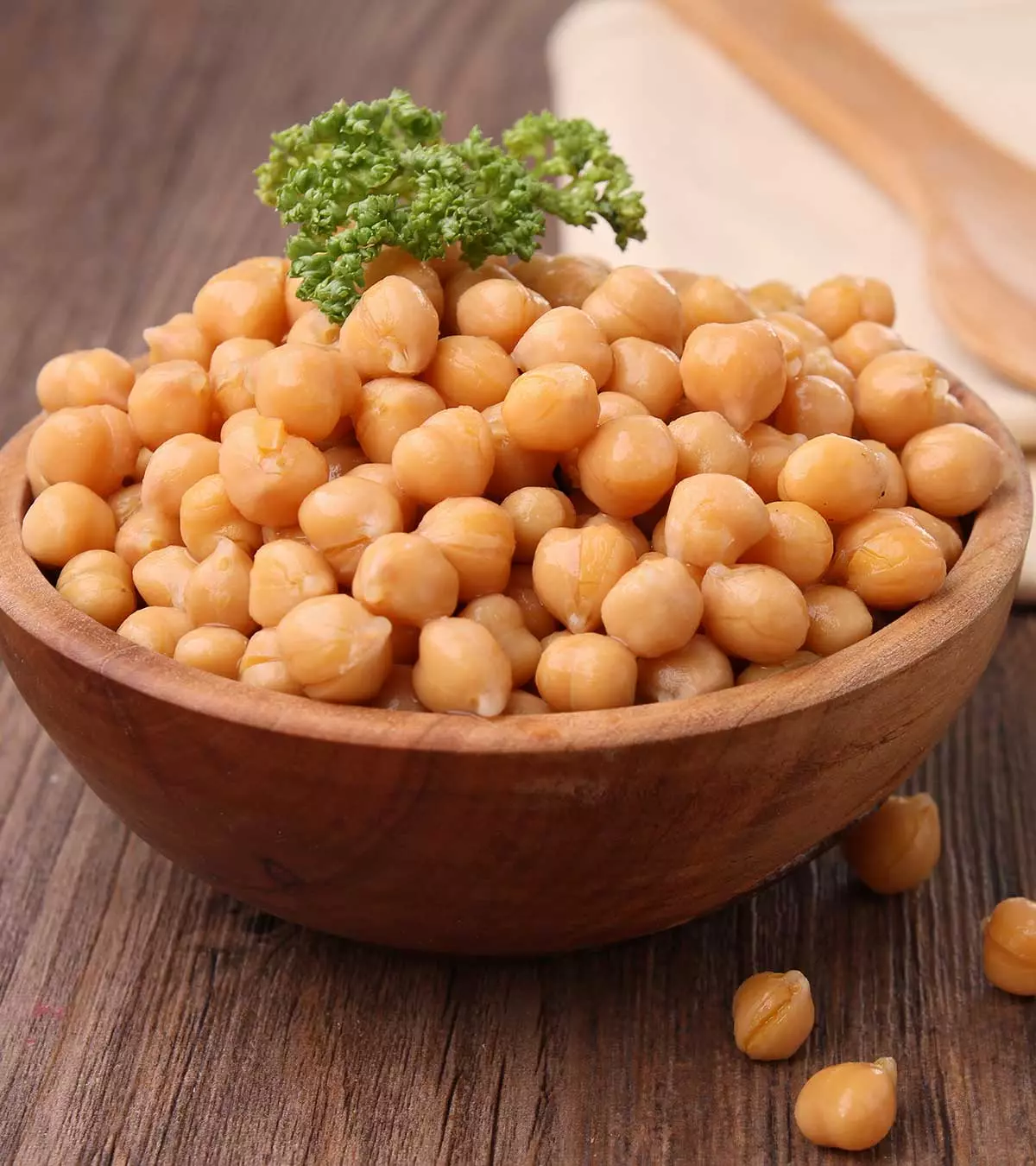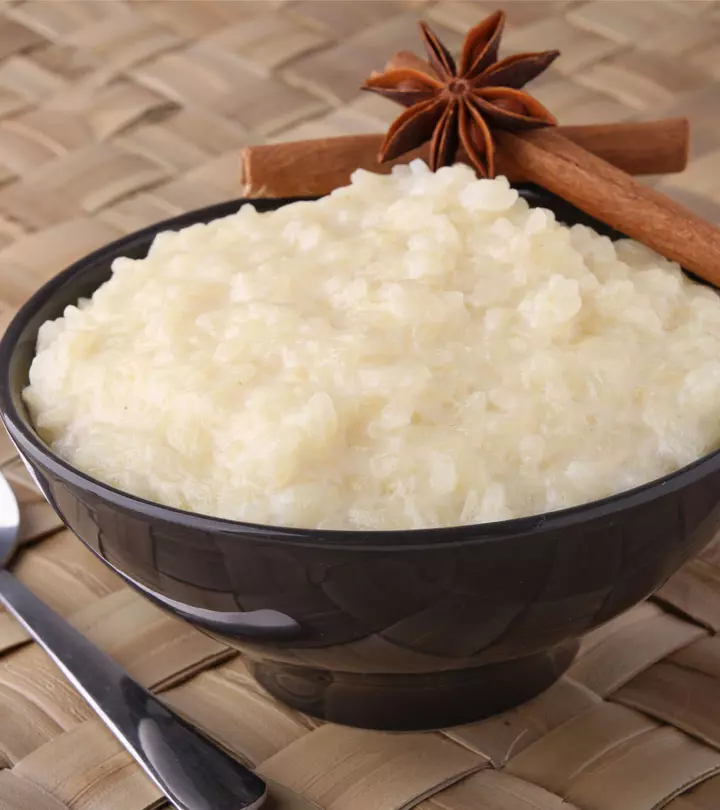
Image: Midjourney/ MomJunction Design Team

Is it safe to eat mustard during pregnancy? Mustard is a food flavoring agent used as a condimentiHerbs usually used in larger amounts than spices to enhance recipes on cold and hot meals. It is an ingredient used in sauces such as mayonnaise, marinades, vinaigrette, and barbecue sauces. While pregnant women may crave sandwiches and hotdogs loaded with these sauces, they may have doubts about consuming mustard when pregnant. Understanding the nutritional profile of mustard can help expectant mothers make informed choices about including it in their diets. Mustard is rich in essential nutrients, including vitamins A, C, and E, and minerals like calcium and magnesium, which are crucial during pregnancy. Read this post as we answer your query regarding the health benefits and side effects of eating mustard during pregnancy.
Key Pointers
- Mustard is safe for pregnant women to consume in moderation.
- Consuming mustard during pregnancy can help manage weight, boost immunity, and reduce cancer risks.
- The presence of mucilage in mustard helps relieve constipation symptoms.
- Overconsumption of mustard may lead to throat irritation, blisters, or miscarriage.
What Is Mustard?
Mustard is popular as a cruciferousiA member of the vegetable family that includes turnips, collard greens, kale, cabbage, Brussels sprouts, and broccoli vegetable belonging to the Brassica family and native to the temperate regions of Europe. The seeds and leaves of mustard are an integral part of several different Indian cuisines. However, in Europe and other parts of the West, mustard refers to the sauce extracted from mustard seeds. Black mustard is the most aromatic and delicious mustard seed. Also, mustard leaves contain lots of nutrients, phytonutrientsiPlant-derived natural chemicals that provide health benefits for the body , and flavonoidsiA class of natural compounds present in fruits and vegetables with varying phenolic structures that help you enjoy a healthy pregnancy.
Is It Safe To Eat Mustard During Pregnancy?
Yes, it is safe to eat mustard while expecting. You can enjoy eating several delicacies with mustard sauce, leaves, or mustard seeds during pregnancy. However, ensure you regulate and limit how much mustard you consume. You should exercise caution as excess mustard intake during pregnancy may lead to miscarriage. Consult your doctor if you wish to eat mustard seeds often during pregnancy.
Health Benefits Of Eating Mustard During Pregnancy
Mustard not only makes your food taste better but also offers you many health benefits. Here are some brilliant benefits of eating mustard while expecting.
1. Prevents cancer
Mustard is full of phytonutrients, so it helps in preventing the development of gastrointestinal cancer effectively. Seeds of mustard inhibit the growth of cancer cells and prevent the development of other cancers during pregnancy.
2. Regulates asthma

Image: Shutterstock
High magnesium and selenium content in mustard provide you with anti-inflammatory benefits. So, consumption of mustard helps you prevent or regulate chest congestion, cold, and asthma while expecting.
3. Weight management
Mustard is rich in thiamine, folates, riboflavin, and other vitamins that promote your body’s metabolism during pregnancy and help you regulate your weight effectively.
4. Boosts immunity
Mustard is rich in minerals, such as iron, manganese, and copper. The mineral content in mustard helps in boosting your body’s immunity to prevent hazardous infections and ailments. Also, the sulfur content in the seeds provides you with antibacterial and antifungal benefits to help combat skin infections while expecting (1).
5. Treats constipation

Image: Shutterstock
Mustard comprises a unique substance popular as mucilage, a thick slimy matter, which relieves constipation. Also, the fiber content in the seeds alleviates the trouble resulting due to constipation substantially.
6. Reduces cholesterol
High amounts of vitamin B3 and niacin in mustard help regulate the cholesterol levels in your body and safeguard you from atherosclerosisiA chronic inflammatory condition characterized by the accumulation of plaques within arteries effectively. Also, adding mustard to your food helps regulate your blood flow and blood pressure effectively.
7. Mitigates muscle pain and arthritis
The magnesium and selenium content in mustard provides anti-inflammatory and heat-producing benefits that alleviate the muscle pain and symptoms of arthritis during pregnancy.
 Health fact
Health factSide Effects Of Eating Mustard During Pregnancy
While adding mustard sauce, seeds or leaves to your regular foods, you need to ensure you don’t add an excess of mustard as it can affect your health and pregnancy adversely. Here are some common side effects of eating an excess of mustard greens during pregnancy.
- Heart-related health problems
- Throat irritation
- Fatigue
- Difficulty in breathing
- Chronic diarrhea
- Miscarriage
- Skin swelling, blisters, or damage
- Coma and death in extreme cases

Image: Shutterstock
Can Pregnant Women Benefit From Using Mustard Oil For Massage?
Pregnant women should exercise caution when using mustard oil for massage. While generally safe for topical application, it’s important to be aware of potential allergic reactions such as redness, itching, and dryness in some individuals (2).
 Caution
CautionMustard oil contains an antigen called allyl isothiocyanate, which can occasionally cause contact dermatitis characterized by eczematous and/or vesicular dermatitis (3) (4). During pregnancy, it is advisable for pregnant women to avoid allergens and potential irritants to prevent skin issues. Therefore, conducting a patch test before using mustard oil for massage and consulting with a healthcare professional for personalized guidance on safe skincare practices during pregnancy is recommended.
Frequently Asked Questions
1. What is the mustard powder pregnancy test?
The Mustard Powder Pregnancy Test is a homemade pregnancy detection method. To take the test, add half to a three-fourth cup of mustard powder to warm water and soak in the bath for about 20 minutes. You are not likely to be pregnant if your period starts within two days after the test. However, you might be pregnant if you do not get your period after two days.
2. Can I eat honey and mustard during pregnancy?
Yes, it is generally safe to consume honey and mustard during pregnancy (5). Both honey and mustard can be used to add flavor to a variety of dishes, and they can also be combined to make a tasty honey mustard dressing.
3. Is it safe to use mustard oil in pregnancy?
There are two varieties of mustard oil: essential and expressed. The US Food and Drug Administration (US FDA) has deemed essential mustard oil safe for use in food, but expressed mustard oil is banned. It is because expressed mustard oil contains erucic acid, a fatty acid that has been shown to cause heart and kidney damage in animals (6). Nonetheless, speak to your healthcare provider to ascertain mustard oil’s safety for you.
4. Is craving for mustard during pregnancy an indication of a baby’s gender?
There is no scientific evidence to support the idea that a pregnant woman’s cravings for certain foods can predict the gender of her baby.
5. Is mustard safe for kidney health?
According to Lisa Richards, nutritionist and the founder of Candida Diet, “Mustard and mustard seeds can be considered beneficial for kidney health when consumed in moderation as part of a balanced diet. Mustard seeds are rich in nutrients like magnesium, which plays a role in kidney function and blood pressure regulation.”
6. Which is better, yellow or black mustard seeds?
General consultant and gastroenterologist Dr. M Madhan Kumar says, “While black mustard seeds are much stronger and can be added to foods for flavor and heat, yellow mustard seeds are gentler and better suited for sauces. Mustard seeds, both black and yellow, have distinct properties and applications. Whether to use black or yellow mustard seeds typically comes down to personal taste and the particular flavor character that a meal calls for.”
Mustard seeds and leaves are nutritious food items that people across ages can relish. You can eat mustard during pregnancy in moderation as a part of a well-balanced diet. Consuming mustard can offer you several health benefits over time, such as increased immunity, better nutrition, cholesterol regulation, and constipation management. You can safely use moderate amounts of mustard oil or mustard seeds along with other spices during pregnancy. Try adding mustard sauce to sandwiches, or prepare delectable recipes using mustard leaves. Whichever way you relish mustard, remember to consume it in moderation since excessive mustard consumption may affect your and your baby’s health.
Infographic: Adverse Effects Of Excess Mustard In Pregnancy
Mustard is generally safe to eat during pregnancy (in moderation) and could be beneficial too. However, when consumed in excess, certain forms of mustard may cause adverse health reactions in pregnant women. Scroll through the infographic below to learn about them.
Some thing wrong with infographic shortcode. please verify shortcode syntax
Illustration: Is It Safe To Eat Mustard During Pregnancy?

Image: Stable Diffusion/MomJunction Design Team
References
- Thu Nguyen et al.; Phenolics of mustard seeds: A review on composition,processing effect and their bioactvities.
https://www.researchgate.net/publication/376482211_Phenolics_of_mustard_seeds_A_review_on_composition_processing_effect_and_their_bioactvities - Vijay Zawar; (2005); Pityriasis rosea-like eruptions due to mustard oil application.
https://ijdvl.com/pityriasis-rosea-like-eruptions-due-to-mustard-oil-application/ - 9 Advantages and Disadvantages of Mustard Oil.
https://connectusfund.org/9-advantages-and-disadvantages-of-mustard-oil - Pasricha JS et. al.; (1985); Contact Hwersensitaity to Mustard Khal and Mustard Oil; Indian Journal of Dermatology Venereology and Leprology
https://europepmc.org/article/med/28164952 - L. Edward Gau; (1964); Contact Dermatitis From Synthetic Oil of Mustard; JAMA Dermatology
https://jamanetwork.com/journals/jamadermatology/article-abstract/528740 - Food taboos and related misperceptions during pregnancy in Mekelle city, Tigray, Northern Ethiopia.
https://www.ncbi.nlm.nih.gov/pmc/articles/PMC7553351/ - Mustard and Mustard Oil Safety.
https://www.poison.org/articles/mustard-and-mustard-oil-safety - Organization of Teratology Information Specialists (OTIS).; (2025) Rheumatoid Arthritis.; Mother to Baby.
https://www.ncbi.nlm.nih.gov/books/NBK582936/ - Pregnancy massage.
https://www.pregnancybirthbaby.org.au/pregnancy-massage
Community Experiences
Join the conversation and become a part of our nurturing community! Share your stories, experiences, and insights to connect with fellow parents.
Read full bio of Jyoti Benjamin
- Dr. Madhan Kumar Madathupalayam Velusamy is a surgical gastroenterologist with over 23 years of experience. He graduated from Coimbatore Medical College and completed his post-graduate studies at Sri Ramachandra Medical College and Research Institute, Chennai. Dr. Velusamy received his DNB in surgical gastroenterology from Gem Hospital, Coimbatore, and is a visiting surgeon and faculty member at various hospitals in Western Tamil Nadu.
 Dr. Madhan Kumar Madathupalayam Velusamy is a surgical gastroenterologist with over 23 years of experience. He graduated from Coimbatore Medical College and completed his post-graduate studies at Sri Ramachandra Medical College and Research Institute, Chennai. Dr. Velusamy received his DNB in surgical gastroenterology from Gem Hospital, Coimbatore, and is a visiting surgeon and faculty member at various hospitals in Western Tamil Nadu.
Dr. Madhan Kumar Madathupalayam Velusamy is a surgical gastroenterologist with over 23 years of experience. He graduated from Coimbatore Medical College and completed his post-graduate studies at Sri Ramachandra Medical College and Research Institute, Chennai. Dr. Velusamy received his DNB in surgical gastroenterology from Gem Hospital, Coimbatore, and is a visiting surgeon and faculty member at various hospitals in Western Tamil Nadu. - Lisa Richards is a certified nutritionist coach from the Institute for Integrative Nutrition. She is an author at the Candida Diet (thecandidadiet.com), with 17 years of experience.
 Lisa Richards is a certified nutritionist coach from the Institute for Integrative Nutrition. She is an author at the Candida Diet (thecandidadiet.com), with 17 years of experience.
Lisa Richards is a certified nutritionist coach from the Institute for Integrative Nutrition. She is an author at the Candida Diet (thecandidadiet.com), with 17 years of experience.
Read full bio of Ria Saha
Read full bio of Swati Patwal
Read full bio of Lorraine Teron



















